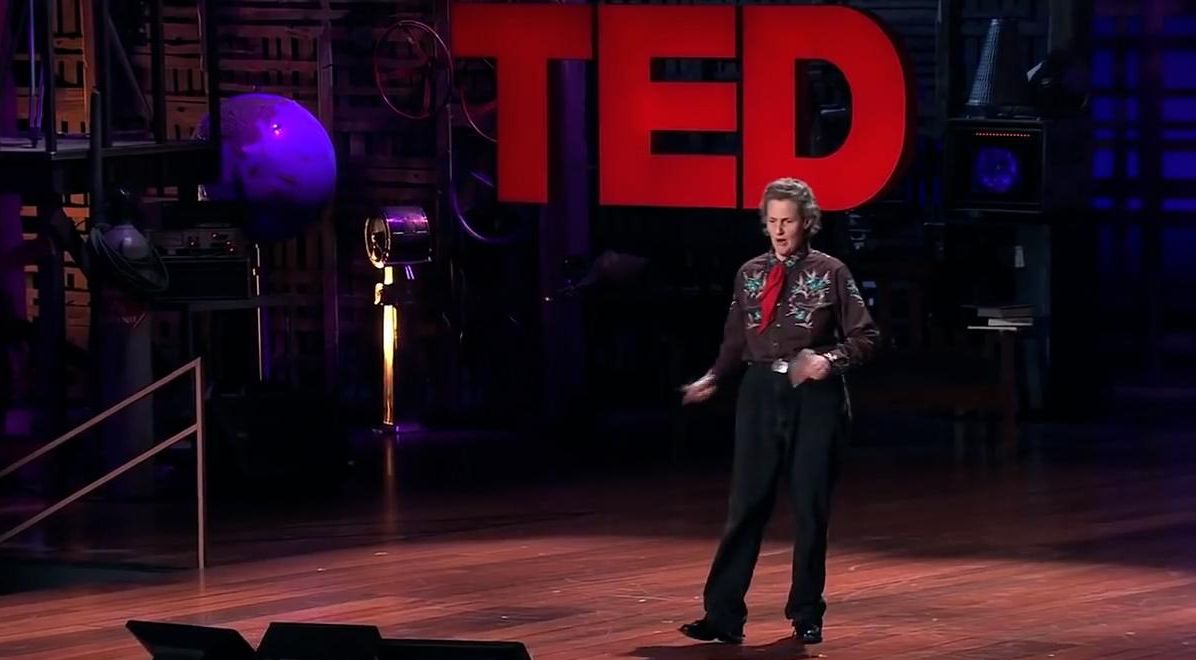
This article originally appeared on 07.21.15
Temple Grandin spent her early life, as she says, “goofing off” until a science teacher made her brain light up.
She was born with autism during the 1940s, when people didn’t understand it well.
But Grandin has done a lot since those days of goofing off.
She became a professor of animal science at Colorado State University, a best-selling author, a consultant to the livestock industry, and a popular public speaker.
HBO made an award-winning movie about her life, which millions of people saw. (When she talks about “the movie” in the TED Talk below, that’s what she’s referring to.)
You can watch “Temple Grandin” on HBO or Amazon.
Her main work now is to educate people on how she, like many people with autism and Asperger’s, sees things in pictures.
She even suggests that some people in places like Silicon Valley may be on the autism spectrum or they wouldn’t have been able to do what they’ve done.
Grandin really does think almost completely in images.
As she describes it, when you say “steeple,” her mind goes to the first image she knows is a steeple from her childhood church. Then, to the next one.
Kinda like Google Images does, right?
Autism is still not very well understood, although research — as well as the number of people diagnosed on the autism spectrum — has been increasing.
Data from the Centers for Disease Control and Prevention shows that the prevalence of autism spectrum diagnoses has drastically increased since 1970. And Temple was born 28 years before this graph’s earliest date.

And no, vaccinations do not cause autism. Science has proven otherwise, so please do not take away from this anything that’s purely fiction.
But there are some things we do know.
Some of them are included in Grandin’s TED Talk.
She has some great suggestions for ways to help those on the autism spectrum, too, like these:
- Educators and parents need to find ways to get people on the spectrum to be engaged and thrilled to be using their unique brains the way they need to in order to make a difference in the world.
- Understand their reality. She was a “different” kid and adult. She made it work because she found her place and made other humans understand that she didn’t function the way that they do. What if we approached other humans on a regular basis with this understanding and empathy? What a wonderful world it would be, indeed.
- Get to know a family with kids who are differently abled than the rest of us. See what their world is like, and maybe make them feel loved — or at least understood a little better.
- Spread the word — when you see her movie or TED Talk, pass it around. It’s a great place to start a conversation.
